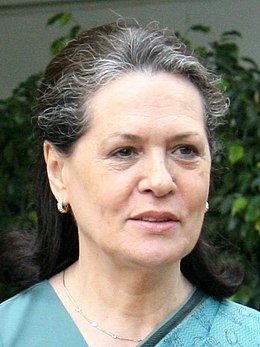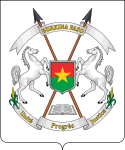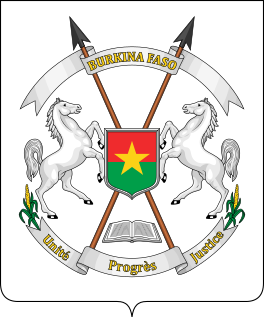
The European Parliament (EP) is the only parliamentary institution of the European Union (EU) that is directly elected by EU citizens aged 18 or older. Together with the Council of the European Union, which should not be confused with the European Council and the Council of Europe, it exercises the legislative function of the EU. The Parliament is composed of 751 members (MEPs), that will become 705 starting from the 2019–2024 legislature, who represent the second-largest democratic electorate in the world and the largest trans-national democratic electorate in the world.

Franklin Delano Roosevelt, often referred to by his initials FDR, was an American statesman and political leader who served as the 32nd president of the United States from 1933 until his death in 1945. A Democrat, he won a record four presidential elections and became a central figure in world events during the first half of the 20th century. Roosevelt directed the federal government during most of the Great Depression, implementing his New Deal domestic agenda in response to the worst economic crisis in U.S. history. As a dominant leader of his party, he built the New Deal Coalition, which realigned American politics into the Fifth Party System and defined American liberalism throughout the middle third of the 20th century. His third and fourth terms were dominated by World War II. Roosevelt is widely considered to be one of the most important figures in American history, as well as among the most influential figures of the 20th century. Though he has also been subject to much criticism, he is generally rated by scholars as one of the three greatest U.S. presidents, along with George Washington and Abraham Lincoln.

James Gordon Brown is a British politician who was Prime Minister of the United Kingdom and Leader of the Labour Party from 2007 to 2010. He served as Chancellor of the Exchequer from 1997 to 2007. Brown was a Member of Parliament (MP) from 1983 to 2015, first for Dunfermline East and later for Kirkcaldy and Cowdenbeath.
Sinn Féin is a left-wing Irish republican political party active in both the Republic of Ireland and Northern Ireland.
The National Rally, until June 2018 known as the National Front, is a right-wing populist and nationalist political party in France. Most political commentators place the RN on the far-right, but other sources suggest that the party's position on the political spectrum has become more difficult to define clearly. Owing to the French electoral system, the party's representation in public office has been limited despite its significant share of the vote. Its major policies include opposition to French membership in NATO, European Union, the Schengen Area, and the Eurozone. As an anti-European Union party, National Rally has opposed the European Union since its creation. The party also supports greater government intervention in the economy, protectionism, a zero tolerance approach to law and order, and significant cuts to legal immigration.

Her Majesty's Principal Secretary of State for the Home Department, normally referred to as the Home Secretary, is a senior official as one of the Great Offices of State within Her Majesty's Government and head of the Home Office. It is a British Cabinet level position.

The Bharatiya Janata Party is one of the two major political parties in India, along with the Indian National Congress. As of 2018, it is the country's largest political party in terms of representation in the national parliament and state assemblies, and it is the world's largest party in terms of primary membership. BJP is a right-wing party, and its policy has historically reflected Hindu-nationalist positions. It has close ideological and organisational links to the Rashtriya Swayamsevak Sangh.

Sonia Gandhipronunciation (help·info) is an Indian politician of Italian descent. A member of the Nehru–Gandhi family by way of her marriage to Rajiv Gandhi, she is a former president of the Indian National Congress. She took over as the party leader in 1998, seven years after her husband's assassination, and remained in office for a record nineteen years, a period that was characterised by the party's renewed adherence to the centre-left position on the Indian political spectrum.

Rahul Gandhipronunciation (help·info)[ˈraːɦʊl ˈɡaːnd̪ʱiː] is an Indian politician. He hails from a long line of politicians, known as the Nehru-Gandhi family, which has occupied a prominent place in the politics of India ever since the country gained independence in 1947. The son of Sonia and Rajiv Gandhi, he is the President of the Indian National Congress and serves such additional offices as the Chairperson of the Indian Youth Congress and the National Students Union of India. A member of the Indian Parliament, Gandhi represents the constituency of Amethi, Uttar Pradesh in the 16th Lok Sabha.

The 2008 United States presidential election was the 56th quadrennial presidential election. It was held on Tuesday, November 4, 2008. The Democratic ticket of Barack Obama, the junior Senator from Illinois, and Joe Biden, the senior Senator from Delaware, defeated the Republican ticket of John McCain, the senior Senator from Arizona, and Sarah Palin, the Governor of Alaska. Obama became the first African American ever to be elected as president.

Elections to the European Parliament take place every five years by universal adult suffrage. 751 MEPs are elected to the European Parliament, which has been directly elected since 1979. No other EU institution is directly elected, with the Council of the European Union and the European Council being only indirectly legitimated through national elections. While Europarties have the right to campaign EU-wide for the European elections, campaigns still take place through national election campaigns, advertising national delegates from national parties.

Elections to the United States Senate were held November 4, 2008 with 35 of the 100 seats in the Senate being contested. Thirty-three seats were up for regular elections; the winners were eligible to serve six-year terms from January 3, 2009 to January 3, 2015, as members of Class 2. There were also two special elections, the winners of those seats would finish the terms that ended January 3, 2013.

The 2004 United States presidential election, the 55th quadrennial presidential election, was held on Tuesday, November 2, 2004. Incumbent Republican President George W. Bush defeated Democratic nominee John Kerry, a United States Senator from Massachusetts.
India is a federation with a parliamentary system governed under the Constitution of India, which defines the power distribution between the union, or central, government and the states.
An independent or nonpartisan politician is an individual politician not affiliated with any political party. There are numerous reasons why someone may stand for office as an independent.

John Winston Howard, is an Australian former politician who served as the 25th Prime Minister of Australia from 1996 to 2007. He is the second-longest serving Australian Prime Minister, behind only Sir Robert Menzies, who was in office for over 18 years. Howard was leader of the Liberal Party from 1985 to 1989 and from 1995 to 2007.

The Democratic Party is one of the two major contemporary political parties in the United States, along with the Republican Party. Tracing its heritage back to Thomas Jefferson and James Madison's Democratic-Republican Party, the modern-day Democratic Party was founded around 1828 by supporters of Andrew Jackson, making it the world's oldest active political party.

Elections to the Swiss Federal Assembly, the federal parliament of Switzerland, were held on Sunday, 21 October 2007. In a few cantons, a second round of the elections to the Council of States was held on 11 November, 18 November, and 25 November 2007. For the 48th legislative term of the federal parliament (2007–2011), voters in 26 cantons elected all 200 members of the National Council as well as 43 out of 46 members of the Council of States. The other three members of the Council of States for that term of service were elected at an earlier date.

The Liberal Democrats are a liberal political party in the United Kingdom. They presently have 11 Members of Parliament in the House of Commons, 96 members of the House of Lords, and one member of the European Parliament. They also have five Members of the Scottish Parliament and a member each in the Welsh Assembly and London Assembly. The party reached the height of its influence in the early 2010s, forming a junior partner in a coalition government from 2010 to 2015. It is presently led by Vince Cable.


















